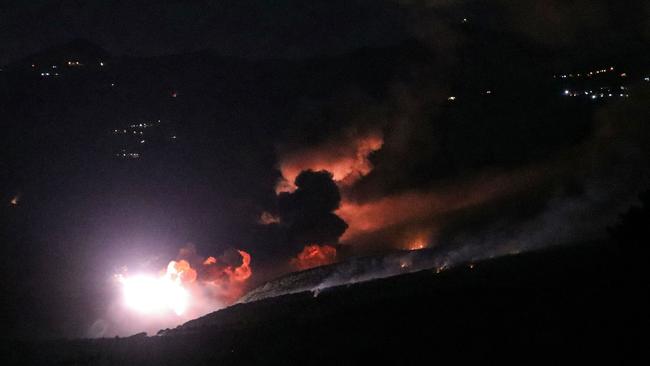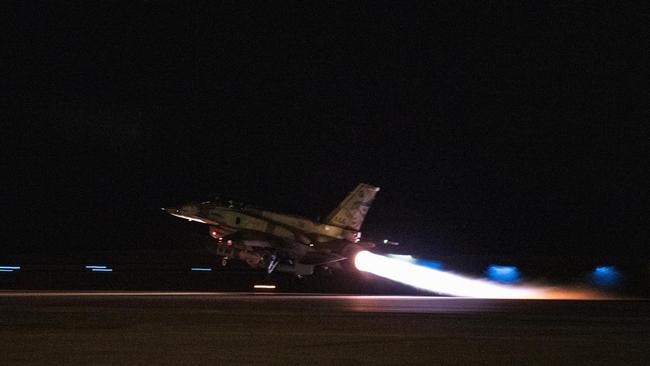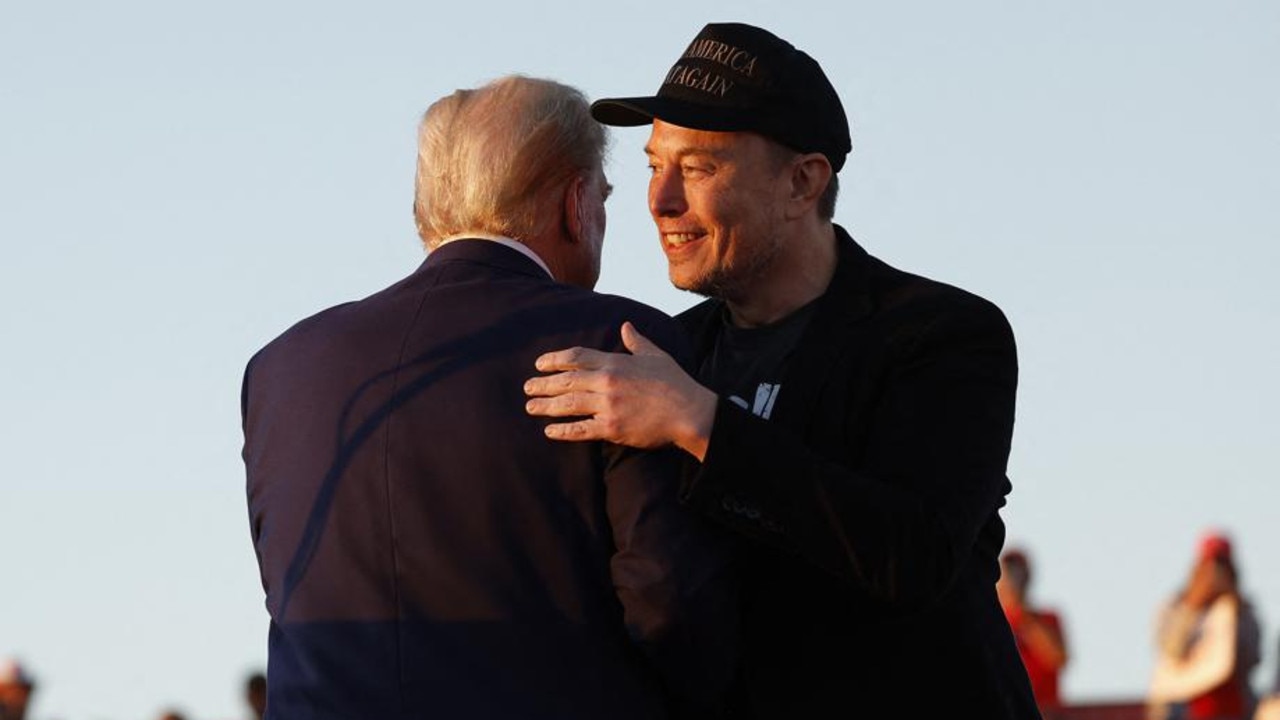Invasion ‘doomsday scenario of all-out conflict’: Lebanese envoy
Lebanon’s ambassador to London, Rami Mortada, has warned his country’s armed forces would not “stand idly by and watch” if Israel were to launch a ground invasion.

An Israeli ground invasion of Lebanon will lead to a “doomsday” scenario of an all-out regional conflict on multiple fronts and the radicalisation of a new generation in Europe, according to a senior Lebanese diplomat.
Rami Mortada, Lebanon’s ambassador to London, warned that the country’s armed forces, trained by the British, would not “stand idly by and watch” if Israel were to put boots on the ground or “mount a heavy aerial attack”.
He spoke after two days of remote detonations killed 37 people and injured more than 3000 across Lebanon as pagers and walkie-talkie devices used by Hezbollah operatives exploded.
Western powers met in Paris overnight on Thursday in an attempt to stave off a cross-border war, after Israel suggested it might invade Lebanon to confront the Iranian-backed militants and stop the rocket and drone attacks that have forced the evacuation of towns across its north.
In an interview with The Times, Mr Mortada said the region was on a “perilous path” with the prospect of Iran and its proxy militia forces in Yemen, Iraq and Syria all joining the conflict.
“We are facing all the risks of an all-out regional conflict and that’s what we have been tirelessly trying to avoid,” he said.
Hezbollah had become a “formidable fighting force” in recent years and Israel should learn from its past “humiliating” defeats, he said, such as the inconclusive, month-long war it fought with the Shia group in 2006. Both sides claimed victory.
“Let’s hope that we don’t get there because this is a doomsday scenario for everyone. It’s definitely a doomsday for Lebanon but Lebanon will not hurt alone in this war.”

Lebanon and Hezbollah have blamed Israel for the synchronised explosions of thousands of handheld devices that caused chaos in the militant group’s ranks, attacks that security sources suggested were carried out by the Mossad spy agency. Israel has not commented on the blasts, but its Defence Minister declared a “new phase” in its war with Hamas in Gaza, and said troops would be diverted to the border with Lebanon.
Hezbollah leader Hassan Nasrallah told supporters in a video on Thursday the sabotage attacks “could be called a declaration of war”. He added: “We were subjected to a huge and severe blow. The enemy crossed all boundaries and red lines.” He warned of a “reckoning” to come. “I won’t talk about place, time, location, details. You will find out when it happens.”
Lebanon, which has a large Christian and Sunni Muslim as well as Shia population, remained on high alert, with controlled explosions carried out on suspicious devices and travellers banned from using pagers and walkie-talkies on flights. Hezbollah typically convenes a public rally for a crowd to watch Mr Nasrallah’s speeches on a big screen, but this time it did not.
Even as he spoke, Israeli war planes streaked across the sky above Beirut, intent on “degrading Hezbollah’s terrorist capabilities and infrastructure”, the Israel Defence Forces said. At least two IDF soldiers were killed and nine injured earlier by Hezbollah missiles and drones sent across the border, the latest of the almost daily strikes it began after the October 7 terrorist attack by Hamas.
Israeli Defence Minister Yoav Gallant said there were “significant opportunities, but also heavy risks” as the country entered a new phase of the war. “Our goal is to return the residents of the north to their homes safely. As time goes by, Hezbollah will pay an increasing price.”
Prince Khalid bin Bandar Al-Saud, the Saudi ambassador to the UK, warned that the Middle East was the closest it had been to regional war in 50 years.
“The situation on the ground is getting worse and worse,” he told Sky News
Overnight on Thursday diplomats from the US, Britain and other European nations met in Paris to try to ease tensions. French President Emmanuel Macron phoned Israeli Prime Minister Benjamin Netanyahu and leaders in Lebanon to urge restraint, while US Secretary of State Antony Blinken warned against “escalatory actions by any party” in the Middle East.
A war between Israel and the Lebanese armed forces would be a diplomatic nightmare for Britain, which has tried to be a friend to both. Hezbollah, proscribed as terrorists by Western nations, has built up a vast arsenal of unguided artillery rockets, as well as ballistic missiles and drones.
Royal Navy warships and RAF Typhoon warplanes helped to protect Israel against airborne attacks by the Houthi rebels in Yemen earlier this year, but there is no guarantee of a similar response should Israel come under renewed attack by Iran or its proxies.
Security sources already fear the Gaza war, and the British and American support provided to Israel, will galvanise Islamist extremists and lead to deadly attacks against Western targets.
THE TIMES


